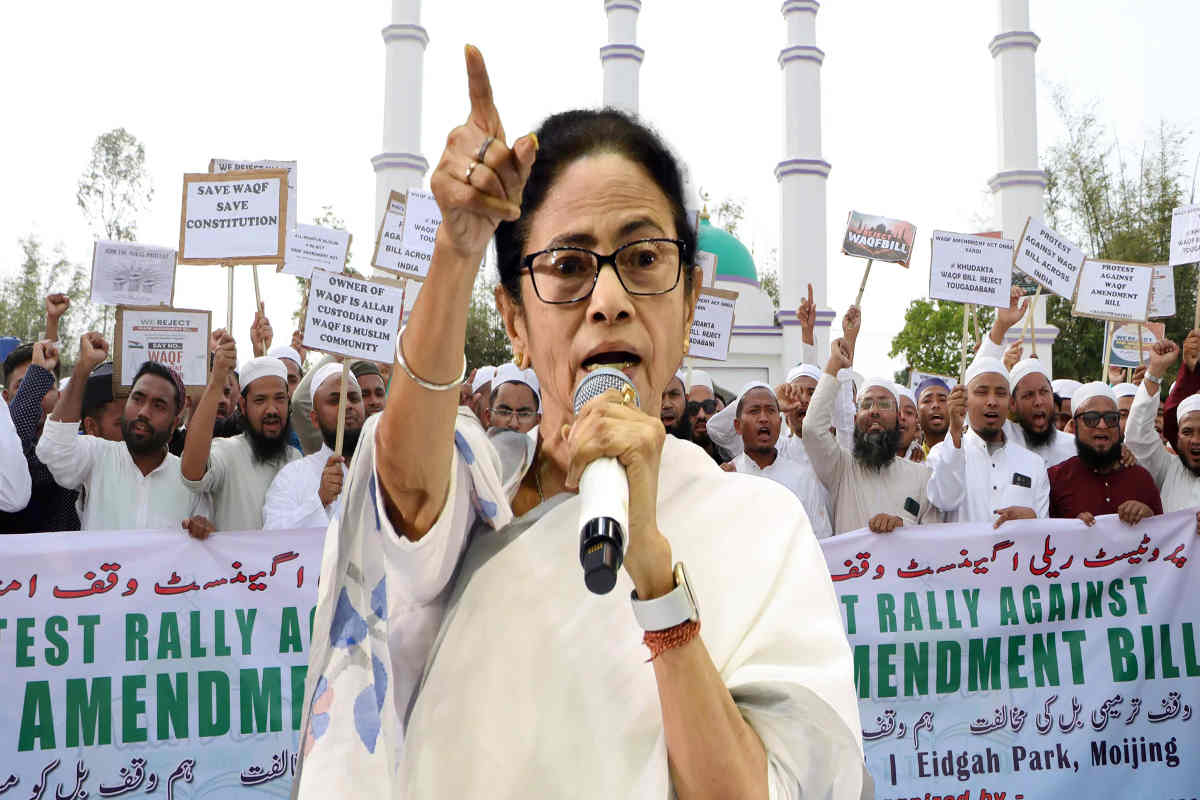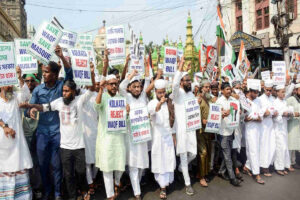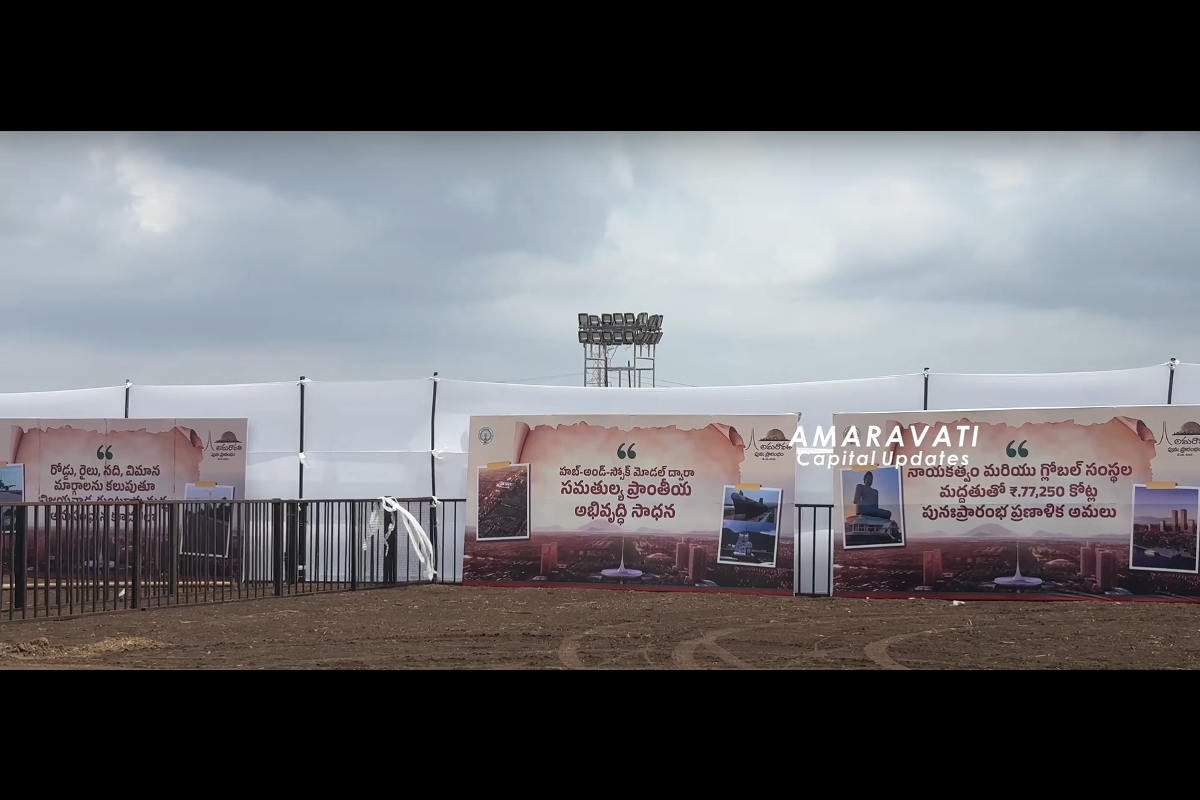
Mamata Banerjee opposes the Waqf Amendment Act 2025, calling BJP’s stance on Muslim rights hypocritical. Protests erupt across West Bengal.
The Waqf Amendment Act 2025 Controversy has sparked political tensions across India, particularly in West Bengal. Chief Minister Mamata Banerjee has vocally criticized the BJP government’s approach to Muslim rights, calling out what she describes as hypocrisy in their domestic versus international stance. Her remarks come as protests intensify across the state, and the legal and political ramifications of the new Waqf legislation continue to unfold.
“You oppose Muslims here, but when you go to Saudi Arabia or Dubai, you accept their hospitality. You speak differently abroad and act differently at home,” Banerjee remarked.
Her comments come amid nationwide controversy surrounding the Waqf (Amendment) Act, 2025, a law that has drawn significant backlash from Muslim communities and civil rights groups. Banerjee has called on the INDIA bloc, a coalition of opposition parties, to unite against the Act, warning that it threatens the secular fabric of the nation.
“Let us stay united and fight together courageously. Today, it is against you; tomorrow, it will be against others. This isn’t personal—it affects us all. Now they want to bring in the Uniform Civil Code,” she added.

Also Read: Supreme Court Stays Waqf Amendment Act 2025 Amid Legal Challenges
What is the Waqf Amendment Act 2025?
The Waqf (Amendment) Act, which received presidential assent on April 5, introduces new regulations on the administration of Waqf properties across India. The changes have sparked fears of government overreach into religious institutions and raised questions about the protection of minority rights.
Protests and Violence in West Bengal:
The law has led to widespread protests in West Bengal, particularly in Murshidabad district, where tensions escalated between April 8 and April 12. Clashes between protestors and police resulted in three fatalities, including a father and son, and left several injured. Protesters blocked National Highway 12, attacked police officers, and vandalized public and private property.
More than 200 people have been arrested in connection with the unrest.
Legal and Political Reactions:
In response to the growing unrest, the Calcutta High Court ordered the deployment of central forces to maintain peace in the region. The Supreme Court of India has taken note of the situation and is currently reviewing petitions seeking an interim stay on specific provisions of the Waqf (Amendment) Act.
Banerjee has assured citizens that the controversial legislation will not be implemented in West Bengal, reaffirming her government’s commitment to communal harmony and constitutional rights.
Government of India – Ministry of Minority Affairs (official site):
👉 https://minorityaffairs.gov.in
Conclusion:
As the debate over the Waqf (Amendment) Act continues to evolve, opposition leaders, civil society, and the judiciary play key roles in shaping the outcome. Mamata Banerjee’s firm stance signals a broader political challenge to the BJP-led government’s legislative agenda ahead of the upcoming elections.
📢 Stay updated with NewsAffair360 for the latest political developments and in-depth analysis of issues affecting India’s democratic fabric.
Stay updated with NewsAffair360!
Follow us on Facebook, X (Twitter), Instagram, and YouTube for the latest political and world news updates.







